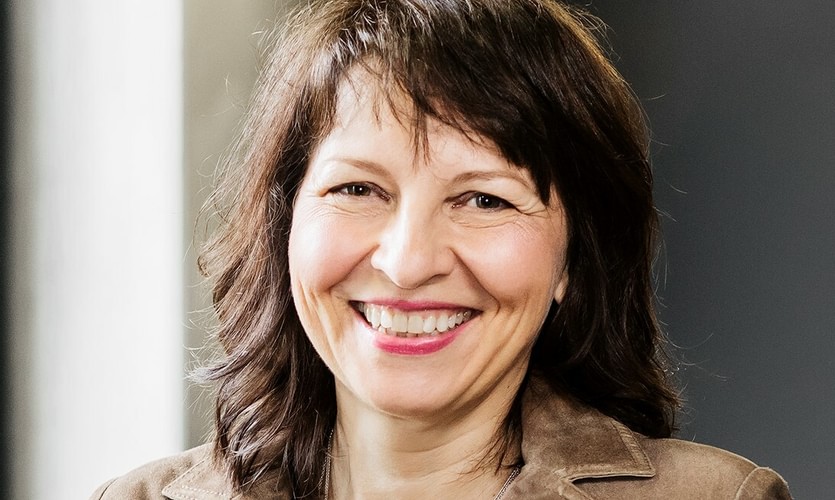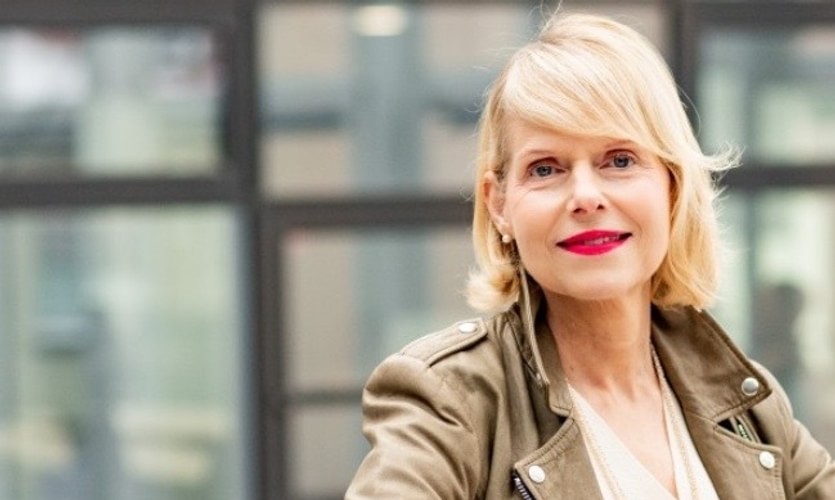How did the idea of building a center for innovation and business creation focusing on the city of the future come about?
Sabine Hansky: The starting point was one 'Forum UnternehmerTUM' with the topic "City of Founders Munich?!" ("Gründerstadt München?!"). The central question was: can Munich keep up with Berlin as a start-up location? Together with start-ups, a marketing expert, and the city, we've discussed why Berlin is better perceived by the public than Munich—even though Munich offers excellent conditions for tech start-ups. And how we can strengthen Munich as a city of start-ups.
Claudia Frey: After the event, Susanne Klatten, Helmut Schönenberger, and the city’s vice-mayor at the time, Josef Schmidt, met and talked about possible joint actions. The initiative to build a center for innovators and founders with a smart city focus was seized by Susanne Klatten, after all. Also inspired by her encounter and conversations with Carlo Ratti, Director of the MIT Senseable City Lab and one of the most innovative thought leaders on the city of the future, she recognized the big challenges of cities across the globe—but also the entrepreneurial opportunities that they present.
Munich Urban Colab focuses on smart city solutions with the goal of making cities safe, inclusive, resilient, and sustainable. Why this focus in particular?
Sabine Hansky: The growth of Munich—today's population is 1.5 million, in 2030 it is expected to be 1.8 million—is presenting the city with major challenges: What does that mean for urban life? For the city's infrastructure? Traffic flows, housing, waste disposal? Cities around the world are facing these challenges. At the same time, the megatrend of urbanization and sustainable solutions for urban challenges open up great entrepreneurial opportunities for start-ups and established companies.
Start-ups, established companies, researchers, students, creatives, the City, and its citizens come together at Munich Urban Colab. Why is it so important for these groups to work on solutions jointly?
Sabine Hansky: Urban challenges are far too complex for any party to solve alone. Just think about autonomous driving! Or public transportation! We need collaboration across industries and disciplines. We need the creative energy of start-ups, the experience and research of established companies, new technologies from science, the different perspectives of creatives and artists, access to the city government, and the public to develop, test, and bring new solutions to market. We are convinced that this diversity leads to the best solutions.
Claudia Frey: I think this approach also excited Susanne Klatten and it was an incredible fortune to be able to engage her and get her support for Munich Urban Colab. And, of course, partnering with the City of Munich is a perfect match for the focus on smart city solutions—the development of clever technologies and smart services can only succeed in collaboration with the city administration. Its mobility and IT departments, the municipal utilities, and its transport society MVG find a home at Munich Urban Colab. They all provide start-ups and companies with rapid access to decision-makers—which is unique.
Sabine Hansky: Principally, we want to invite citizens to join us in shaping the city of the future at Munich Urban Colab. Technologies provide solutions—but it's not just about what's technically possible. It's about integrating new technologies into existing and new systems, and also about reflecting: What makes sense? What is human? We believe in a city that serves and engages people. The central location in the city's heart, in the middle of the creative quarter, and the architecture offer the best conditions for this.
Was the planning of the Munich Urban Colab just as collaborative?
Claudia Frey: Yes, the collaboration with the City was excellent and inspiring from the beginning on. Together, we designed the tender, held the competition, and then started the construction. The state capital has provided the land for the Munich Urban Colab site while UnternehmerTUM has assumed the costs for the building.
Are there any lessons learned from UnternehmerTUM's Entrepreneurship Center in Garching that have been incorporated into the Munich Urban Colab concept?
Claudia Frey: Definitely. We've done many things right back then, for example, the flexibility of rooms. Depending on the requirements, we can rebuild and adapt them to the teams' changing needs. This freedom is brought to a whole new level at Munich Urban Colab: instead of fixed walls, there are mainly space partitions and installations that can be moved and changed as required. We also adopted the transparency from Garching. Our aspiration was: 'You have to be able to scent, taste, and feel the entrepreneurial spirit.' Another learning from Garching: the MakerSpace, a high-tech prototyping workshop, has enormously boosted the work of start-ups and the speed at which ideas and new products are developed. There will be a MakerSpace at the Munich Urban Colab, too.
What can we look forward to in the next months and how can people co-create at Munich Urban Colab?
Claudia Frey: We are excited about a sensational building where we'll experience completely new forms of collaboration! Start-ups and established companies can dock at the Colab through the programs of UnternehmerTUM—for example, Digital Hub Mobility, BEFIVE, XPRENEURS, TechFounders, etc.—or rent workspaces. And of course, we're looking forward to many exciting events—in July, for example, DLD and the bar camp "New Green Munich" will take place at Munich Urban Colab—and many discussions, workshops, and conferences on the city of the future!




